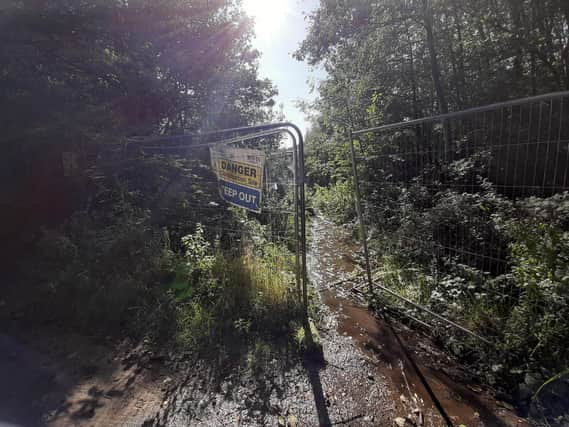Council moves to protect woodland at centre of controversial planning application in historic Yorkshire village


Sheffield Council made the order on trees at Storrs Bridge Lane, Loxley, around the former Hepworth’s refractory site by the River Loxley.
Plans to build up to 300 new homes on the site prompted 900 objections and were unanimously refused by councillors last September. Loxley is one of the locations claimed as the birthplace of the legend Robin Hood.
Advertisement
Hide AdAdvertisement
Hide AdDevelopers Patrick Properties appealed and a planning inquiry is due to be held in April.
Jack Foxall, of the council’s urban and environmental design team, says in a report: “The tree preservation order was made in October on land at the former brick refractory works at Storrs Bridge Lane.
“Trees at this site are considered to be under possible threat because of potential future development works.
“These trees were found to be of significant amenity value to the local area and consequently suitable for protection according to criteria. Officers considered it expedient in the interests of amenity to make the order.”
Advertisement
Hide AdAdvertisement
Hide AdPatrick Properties did object to the tree preservation order – but not within the deadline of the statutory consultation period.
The report adds: “The closing date for objections was November 2020, as stated on notices issued to all affected parties including Patrick Properties. As such, the council is under no obligation to consider this objection.
“Nonetheless, the council responded to the objection. Woodland categorisation was judged the most suitable of the limited range of categories available under the TPO regulations. The assessment undertaken by officers was clear that protection of trees was fully justified.
"Protection of the trees will benefit the visual amenity of the local environment.”
Advertisement
Hide AdAdvertisement
Hide AdAn order may prohibit the cutting, topping, lopping or uprooting of the trees and also prohibit the wilful damage or destruction of them. Anyone who contravenes an order could receive a fine of up to £20,000.
Comment Guidelines
National World encourages reader discussion on our stories. User feedback, insights and back-and-forth exchanges add a rich layer of context to reporting. Please review our Community Guidelines before commenting.